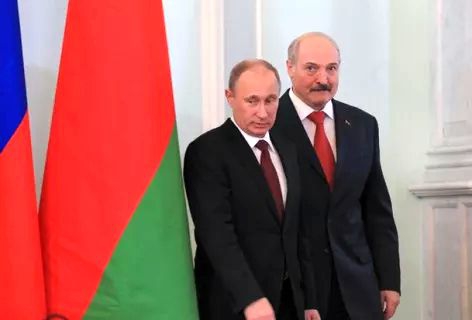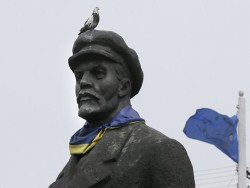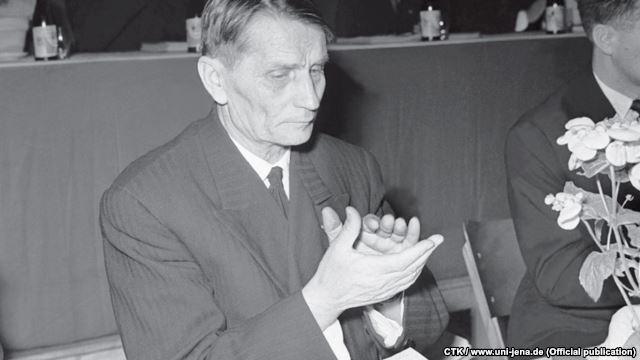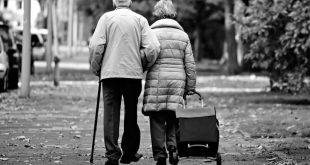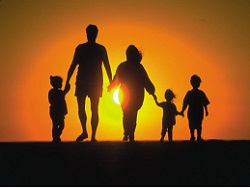
Victor Militarev tries to guess the character “of the country, returned home.”
I am very pleased with reader reactions to my last column (“Lost chance of Russia”. And read the text a lot of people, and a lot of comments. Moreover, among the comments I would particularly noted are not those where readers agree with me, but rather those where they are my mind. Among these negative reviews came across well, Oh, very nervous. And I’m glad. So, managed to hit home. Moreover, among the most nervous of the commentators were not only liberals and other anti-Soviet, to Express very strongly the regret that failed to “curb the vermin”. No less, I was outraged and the Pro-Kremlin loyalists. They are extremely pissed off my basic thesis about the “lost chance”. How is that so? Russia here, you know, with knees up on all sides, surrounds NATO and the Military here about some “missed chances” he writes. “It is you, Mr. Militarev, missed your chance, not Russia!” — I wrote one indignant. And, frankly, I this batterton very pleased.
But the very good news of those that, as the Bible says, “utochnyat bones,” appeared to me three review authors independently from each other, admitted that they, from time to time, he broke out in a nasty feeling that we are all not in real Russian history, and some dead-end branch of a failed historical alternatives. So, I am not one crazy, which is all sorts of strange thoughts come into your head from nowhere. So, such feelings are in the air. I’m now certainly sure that such feelings had very many. Just the majority of those who something like that could feel like it is too shy to admit their “unusual” feelings with a distinct “odor of mysticism”. Not to say “tainted”.
And after reading these reviews, I finally decided to take the continuation on the topic. That is to write about how I see “normal Russia”. Russia, returning to the Main historical sequence. Of course, this topic again suffers with mysticism and what is usually called “extreme subjectivity”. However, I have my feelings and “dreams” are quite inclined to believe. Especially now that I have finally realized that those feelings and dreams not to come to me alone.
However, I have previously had “some evidence” that I’m not alone. The “evidence” found in contemporary Russian fiction. I’m a big fan of this reading. I have on friend-feed Samizdat probably under three hundred writers my friends. If it is not to talk about those authors, whose books I sometimes buy “on paper”. And so have these couple hundred very inadequate in the creative level of the authors, fairly similar ideas about our country and about what for us “normal” and what is “pathology”. And the idea of the norm manifest itself in artisticheskij the plots and in the plots “povedencheskikh”, and “galactic future”, and so on.
Of course, my own feelings and experience of reading Russian fiction is not my only sources. A lot can be understood from the observation of life Belarus, Transnistria, some regions of Slobozhanshchina and the new Russia. At least in the “pre-Maidan” period. A lot can be understood from the life of our province. Not so much okolonosovyh areas where two thirds of the male working age population “shifts” make a living “in capitals”, “North”, and in the province of the present. On the lives of people in many Northern Siberian, Ural and far East settlements you can pretty much learn and understand about our people. And in the most prosperous southern regions, primarily the Rostov region and Krasnodar Krai, there are a lot of things, so to speak, “suggestive thoughts”. And finally, there’s something that can be seen literally in all of us. And that “something” is quite common and a lot of us all says.
Let’s start in order. That is almost always present in Russia almost any fantasy novel, regardless of genre? Russian have high-quality medicine. There are hospitals and doctors, nurses and orderlies. And high-tech equipment. Always present education. And universities, and schools, even to rural. And Amateur but all sorts of clubs and societies. Almost always there is some kind of machinery and other equipment. And the people who support this technique. And some even create. However, among all the equipment are especially welcome military, including tanks, ships and planes. And sometimes starships. Well, of course, there is no Russia without an army, police, security. Where is the army, there is the military-industrial complex. In the army, of course, is, as in the state security, special forces. And the army has the Charter of guard duty, and sentries with distributing, the “bedside table” for orderly and all the other stuff. And “sun” on the bar and other push UPS. But enough of this. In Russia, as a rule, there is the system of public nutrition and health resort rest and treatment. Until some kind of “weekend tours”. But in the system of public power, that is, quite simply, in the dining rooms, almost always there is a lunch menu of soup, meatballs with mashed potatoes and compote. Family is strong, monogamous, but with great freedom before marriage. And, of course, a lot of homophobia.
That is, summing the first preliminary result, Russian science fiction sees as the civilizational core of our country and people, social institutions of the Stalin era. Of course, not only. Almost always present institutions of the pre-Petrine origin. The community, the artel, the Cossacks and, of course, Orthodoxy. All this is complemented by very often institutional borrowing from America of the XIX century, specifically a “redneck” way. In Russia often present sheriffs, national guard and the General arming of the people.
And, as a rule, there is the fact that in the days of my youth was called, however, without any reason, the “Leninist national policy”. That is, in Russia there are different other Nations, including, and the non-Orthodox. And these people have dual ethnic identity. That is, perceive themselves, on the one hand, as the Circassians, Bashkirs, Buryats, or, on the other hand, as a full-fledged Russian. I think the question here is about the fantastic ability of our people to assimilation of national minorities. When, often, Russian makes me feel even such “stiff-necked” people like the Chechens or Jews. Moreover, the “style” of Russian assimilation is very specific. Like no West nor the East. On the one hand, assimilation is very soft, I would even say, “gently”. All “national minorities” have equal rights with Russians and their specificity while stressed is respected. But this “soft environment” terribly aggressive, in the sense that it blurs the non-Russian identity quickly, effectively, and I would even say, in some sense, mercilessly.
Private property in Russia, as a rule, present and even encouraged. But usually apply to small firms in the service sector. Restaurants, hairdressers, grocery and Department stores and everything. A “basic industries are in state hands or under his control in one way or another. The power is almost always an authoritarian, but with a large number of forms, different kinds of democracy, corporatism and self-administration. Authoritarianism, as a rule, is connected with the fact that the leadership at all levels is carried out by people who have the ability to manage and willingness to take responsibility for the governed. Almost never seen in Russian science fiction novels expressed sympathy for the parliamentary system. But for every “people’s assemblies” and other “Assembly circles” — it zavsegda.
That is, to be very brief, “Russian dream” in the mirror of Russian fiction. This “dream” is the idea of the “right of life” of the peasant children that were, for several generations, urban gloss to school, the army, in industry, CB, clinics and universities. But Baranivka community-artisanal peasant psychology.
The image was confirmed by parallel sources, which I said at the beginning. First of all, the experience of Belarus, Ukraine and Transnistria. And I’m not talking just about “empirical analysis” of the life system of post-Soviet States. Here, I have, at least, exactly, is present, as in the case of Russian fiction, is quite a mystical feeling. About Ukraine a special subject. But looking at life Belarus or Transnistria, I repeatedly caught myself on the feeling that it’s miraculously surviving a dead-end in our reality, the pieces of the USSR. Moreover, we are talking about the USSR, so to speak, “post-perestroika”. Of the Soviet Union, successfully carried through a democratic and market reforms, but retaining a socialist base and continues to develop further. The first time this feeling came to me when reading published in the Soviet era Strugatsky’s novel “Burdened with evil”. There, if you remember, was not only “drabant perestroika”, but also the district committees of the party. And there is depicted the post-perestroika Soviet Union has completely charmed me. There was a sense that this is our “present” and “right” future. And then this feeling began to arise when traveling to Tiraspol or Minsk.
Can not forget their impressions of Tiraspol about ten-fifteen years ago. It was a feeling very similar to my feelings perestroika Soviet Union in 1987-1990. In the first and in the second case was a strange feeling continued all year round late spring with bright sunshine and blue, uncovered dark clouds, the sky. Tiraspol has impressed me the city in which smiling policemen translate old ladies across the street, as in the “good old days”. And this is absolutely not hindered, but rather strengthened the initial impression of every big plant so-called “Armory”. To quickly arm the workers and engineers on the occasion of the resumption of war.
Very similar feelings and from Belarus. Especially shocked me at the time, the preservation of the Soviet high and medium technologies. The presence in an agrarian country, and a successful agricultural country, televisions and liquid crystal displays of local Assembly of tractors own production. However, here with small business in Belarus problems. In contrast to Transnistria, he was not encouraged. Still can’t forget funny Belarusian girl living in Moscow. She did not like Lukashenko. Of course, for the fact that he is a “tyrant”. And violently abused by the Belarusian entrepreneurs in Moscow that sell food, clothing and shoes. “You know,” cried she, ” they sell all this at a price two times more than they bought. It’s just tacky.” And all my attempts to explain to her that the Belarusians are traded in Moscow at the prices compared to conventional Moscow, almost dumping, have not succeeded. Good people, in short.
Ukraine, of course, more complicated. But before the final oligarchic looting along with “the rise of the national spirit” there was also a lot of what can be called “post-Soviet” in the specific sense that I used to mention Transnistria and Belarus. Verhovye Council of Ukraine in the first ten years of its “independence” until the pain reminded me of the perestroika, the Supreme Soviet of the USSR, and especially my favorite of the Supreme Council of Russia. I was shocked at how Ukraine has survived all the “popular initiative” that emerged in the perestroika era, and we, in Russia, swept away by the bulldozer roller Gaidar’s reforms. And in Kharkov, Odessa and Donetsk was full of Amateur theatres, literary cafes, psychotherapeutic groups and philosophical groups. And in the Donbass local oligarchs, with all my hostility to them, managed for some time to implement something like a European social democracy. Some time in the Donetsk and Luhansk regions due to the booming success of the production was very high quality welfare state, so to speak, “regional scales”. And small businesses of the local oligarchs helped. That is, the behavior of the “terrible and cruel Donetsk oligarchs” was much more humane and socially-oriented than the behavior of “liberal and enlightened Russian oligarchs.
Many interesting things can be found in the Russian province. Where the “shift method” is not widely used among the bosses are very decent people. In Siberia and in the North, and the far East. Among leaders in rural and small urban settlements, and among, say, construction workers or police officers. And normal plant managers in these parts, oddly enough, survived. That is, in the future these people to gain normal Russian elite. Tens of thousands of responsible, honest, professional and slightly corrupt leaders. Yes, and in the provincial universities, a bunch of intellectuals of high level, and, in contrast to Moscow, not poisoned by the poison of liberal ideology. And finally, the army. Among active and recently retired” officers of the middle level of the huge reserve of the future Russian elite.
Finally, the social and psychological traits of our people, which arose in the Soviet period, and is still, thank God, are at the core of our national character. They adjoin the social and psychological traits that are clearly pre-Petrine origin, but in harmony with the first. I have already repeatedly wrote, but I think it’s right to tell now.
First of all, we are talking about the late Soviet consumer ideal. It is a well known triad “apartment, car, dacha. The consumer ideal is much more modest consumer ideal of the “Golden billion”, but often exceeds the affordability of many third world countries. And this ideal, of course, alive to this day. He, of course, by birth a peasant. An indispensable desire of citizens to have the cottage reflects the age-old and, in my opinion, rightly, the envy of the peasants to the nobles. No wonder we are now so popular the term “patrimony”. And nobody cares that the origin of this term goes back to the same stupid sect.
Same thing with the car. The car is a natural dream of the peasant. The car is an ideal means of transportation in the village and in a small town. The car is perfect for trips to the country. Only in very large cities, a car makes life. Well, with the apartment, I believe everything is clear without comments. Also alive and late-labor ideal — “interesting work, good team relationships, close to home”. And although the lives of most of us, especially in big cities, this ideal is not responding, but striving almost everything to him.
From our pre-revolutionary ancestors we have inherited a psychology participant in the community. When some resources were shared equally, “poll”, and others — according to the labour and entrepreneurial input. This is our idea of justice shared by almost all. And from the same community or artisanal time comes and our tendency to erratically work. The tendency to alternation of “jerks” and a long rest, so incomprehensible disciplined Europeans, especially the Germans.
Our ideal food dates back to pre-revolutionary times, but was fixed during the Soviet. This is the Trinity “borsch, cutlets, compote, which I mentioned above. She is still alive. My friend, the Manager of the cafe, said that specifically trying not to include puree and juice to their menu. “And then they will take all, rich and poor, and other products will remain unsold”. This style of food originated, if I’m not mistaken, have a little nobility in the mid-nineteenth century. However, at the turn of the century became the massive style of the urban middle class. Gradually out of the “mansion” he was absolutely the “bourgeois,” and many memoirs about the pre-revolutionary years to hear about how the boys from bourgeois families hated this “food for the poor” and dreamed of “pineapples, grouse and champagne. Well, just like our idiots 80-90. Soviet obschepit from the 30’s, if I’m not mistaken, years has made this menu and the standard for mass catering. Gradually this style became the popular, succeeding, not without a fight, love the traditional peasant children to “soup Yes porridge”.
Well, that’s about all. It seems to me that a clear picture emerges. And to me this picture managed to bring to your attention. And I extremely hope and sincerely believe that we will return to a normal life. The more that we all desire.


